Despite its small territory, El Salvador boasts exceptional biodiversity due to its tropical location along the Pacific Ocean. However, around 75% of its land is used for agricultural and livestock activities. Combined with climate change and environmental degradation, this has led to a sharp decline in many native species. According to the Ecological and Environmental Unit (UNES), there are currently 77 endangered species in El Salvador.
In this article, we present 20 notable endangered animals in El Salvador, explaining their characteristics, threats, and the importance of their conservation.
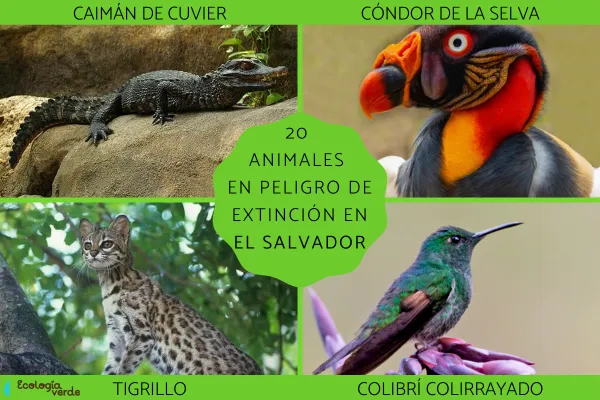
Once believed extinct in El Salvador, this striking raptor inhabits tropical lowland forests. Adults are medium to large-sized with orange feathers on the sides of the head and a striped black-and-white belly. Juveniles have white feathers on the head and abdomen. The species is critically endangered and requires focused conservation efforts to ensure breeding and long-term survival.
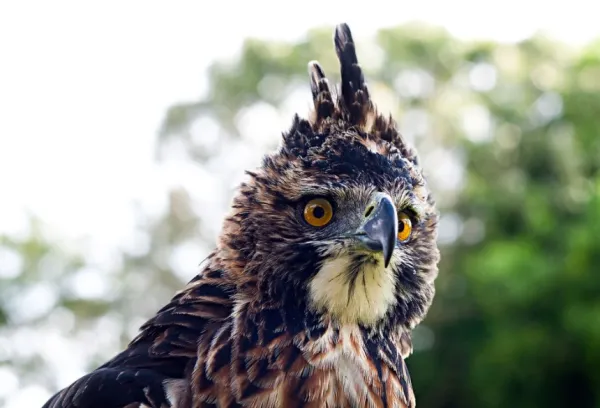
This medium-sized marine mollusk has a strong, thick yellow shell about 15 cm long. Its oblong outline and typically eroded spire make it easily recognizable. The appearance of many empty shells in recent years suggests a sharp decline in its population, raising serious concerns about its future.
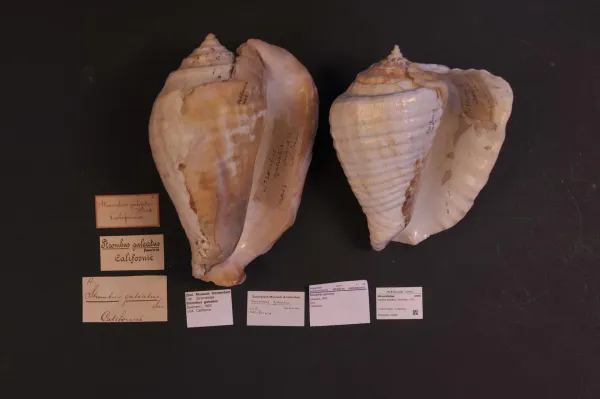
Famous across Central America, the quetzal is known for its brilliant green-blue plumage and extremely long tail feathers. Due to illegal trade and habitat loss, its numbers have plummeted in El Salvador and neighboring countries like Mexico and Guatemala. Females often have duller plumage with red chests and dark patches.
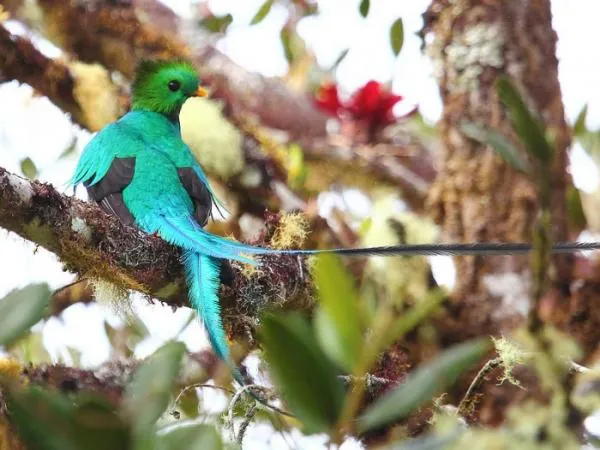
The leatherback turtle is the largest living sea turtle, reaching over 2 meters in length and weighing more than 600 kg. Found in tropical and subtropical oceans, it feeds primarily on jellyfish and marine algae. While globally listed as vulnerable, in El Salvador it is considered endangered, and urgent conservation is necessary.
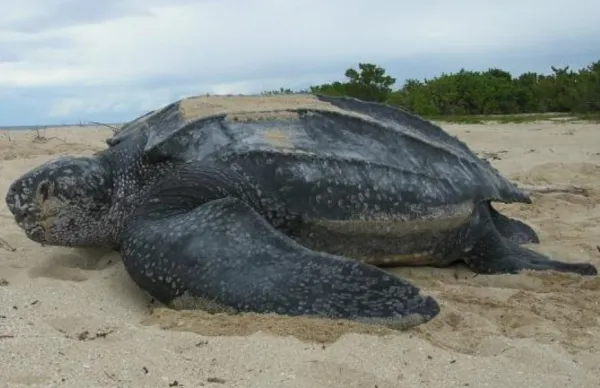
Named for its long, saw-like snout, the sawfish can grow up to 6 meters long. It inhabits shallow coastal and freshwater zones, usually at depths less than 10 meters. This species is not only critically endangered in El Salvador but also globally.
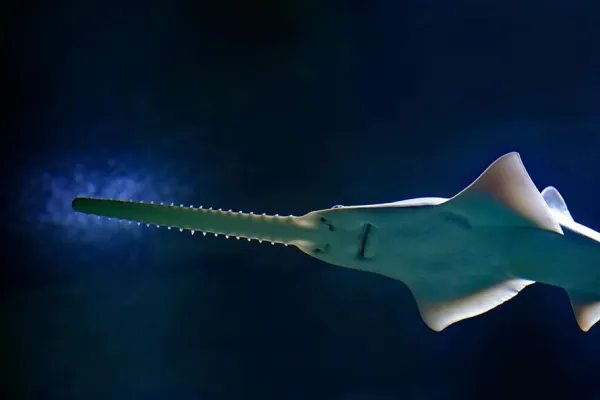
Critically endangered, the hawksbill turtle is a symbol of El Salvador’s marine conservation efforts. Human exploitation of its ornate shell for crafts and the consumption of its eggs have contributed to its decline. Conservation programs are actively working to protect this iconic species.
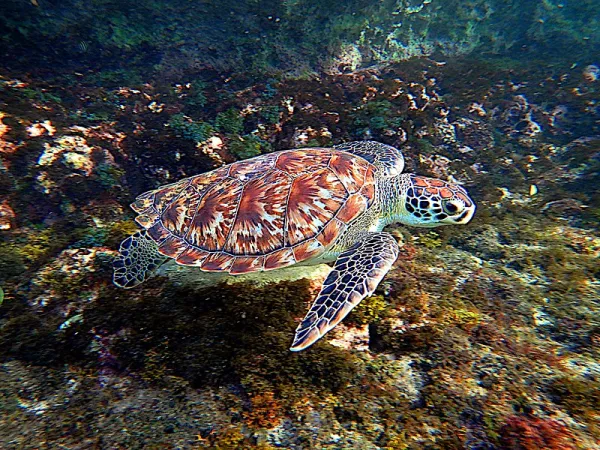
This small bird of prey has long, rounded wings and a slender body. Females are up to 25% larger than males. It preys on small birds in forests and inhabits temperate to subtropical areas. In El Salvador, it is listed as endangered due to habitat loss and human activity.
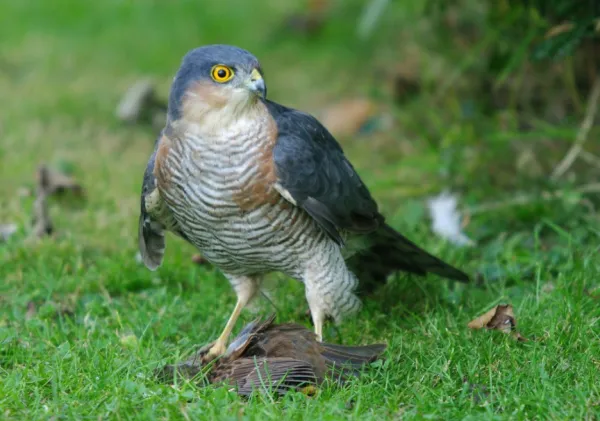
In addition to the species listed above, El Salvador is home to a wide range of unique fauna, including:
Green Toucanet (Aulacorhynchus prasinus)
Mexican Tree Porcupine (Sphiggurus mexicanus)
White-nosed Coati (Nasua narica)
Eyelash Viper (Porthidium nasutum)
White-tailed Deer (Odocoileus virginianus)
Yellow-backed Iguana (Ctenosaura flavidorsalis)
King Vulture (Sarcoramphus papa)
Cuvier's Dwarf Caiman (Paleosuchus palpebrosus)
Montecristo Salamander (Bolitoglossa heiroreias)
Golden-cheeked Warbler (Setophaga chrysoparia)
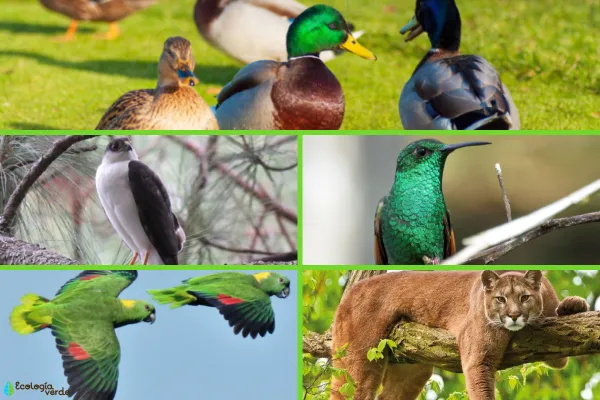
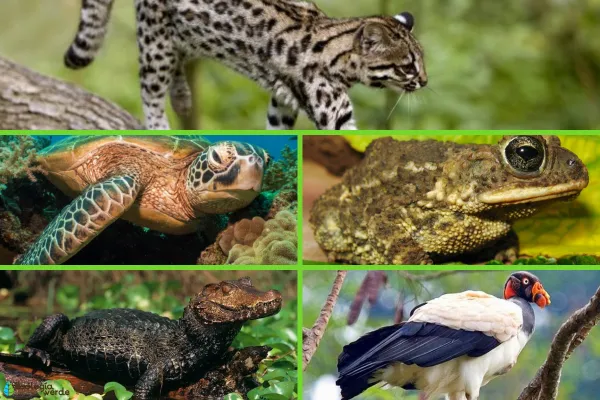
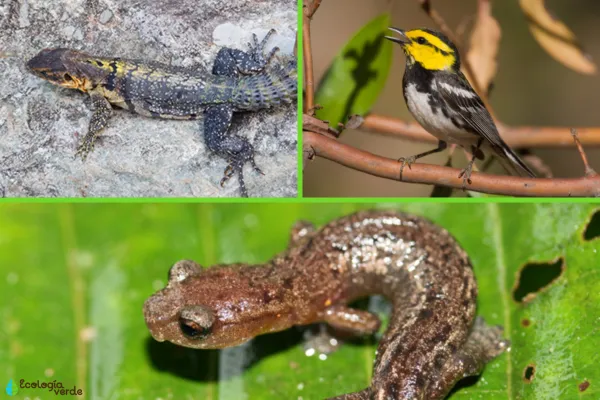
Here are additional species facing serious conservation threats:
Mallard Duck (Anas platyrhynchos)
White-breasted Hawk (Accipiter chionogaster)
Stripe-tailed Hummingbird (Eupherusa eximia)
Yellow-naped Amazon (Amazona auropalliata)
Mountain Lion (Puma concolor)
Tiger Cat or Oncilla (Leopardus tigrinus)
Black Turtle (Chelonia agassizii)
Tiny Toad (Incilius coccifer)
For photos and descriptions of these animals, see the visual guide available on our site.
To support the conservation of endangered species in El Salvador, here are a few key actions:
Reduce deforestation: El Salvador has one of the highest deforestation rates in Central America.
Ban illegal hunting: Strengthen enforcement of wildlife protection laws.
Control overexploitation of natural resources.
Expand and enforce protected natural reserves: Limit human activity in biodiversity hotspots.
Restore degraded ecosystems: Replant native trees and clean rivers.
Participate in volunteer programs: Join local wildlife conservation efforts.
Raise awareness: Educate others on the importance of protecting biodiversity.
For more information, we recommend reading:
Why It’s Important to Protect Endangered Animals
Endangered Animals Around the World
32 Endangered Species in Spain
25 Endangered Animals in Mexico
Explore more in our “Endangered Animals” section to learn how you can contribute to global conservation efforts.
animal tags: endangered animals
We created this article in conjunction with AI technology, then made sure it was fact-checked and edited by a Animals Top editor.